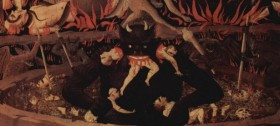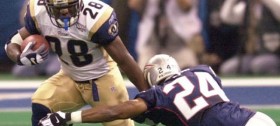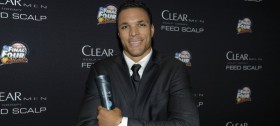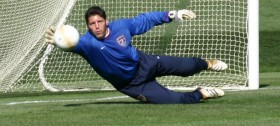Posts tagged drugs
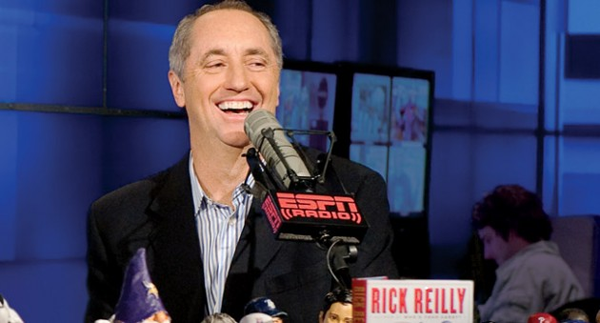
ESPN’s Rick Reilly Tells Us What To Expect From His New Book
Growing up in high school besides the text books and novels I had to read for school most of my reading material consisted of comic books. That was until I started reading Rick Reilly’s column in “Sports Illustrated.” Rick has a way of telling a story that perfectly intertwines sports and life. Rick has been voted NSSA National Sportswriter of the Year eleven times. He currently writes for ESPN, but will be stepping down from that role on July 1st.
On May 13 you can get his new book, “Tiger Meet My Sister: And Other Things I Probably Shouldn’t Have Said.” This book is a collection of his work that even has a postscript section after each story to let the reader know if anything has changed since he posted each story.
I had the pleasure to chat with Rick about his new book, how Muhammad Ali played many pranks on him, best and worst interviews, sports, and more.
Art Eddy: I am loving your latest book. The forward/obituary sections were amazing. I am guessing since you are a writer you may have written your obituary a few times right?
Rick Reilly: (Laughs.) When you have to write a weekly sports column, which I feel like I have been doing since I was 20, you just go through dozens and dozens of ideas every week. Sometimes they don’t work out. You kind of hide them. I have this file on my computer that has about 500 ideas. Out of those 500 ideas 300 of them have been started and then abandoned.
I have probably worked on my obituary about ten different times. I was thinking okay I got nothing else this week, so let me try the obituary. Finally I thought this would be the perfect forward because beginning July 1st I am giving up the sports column for 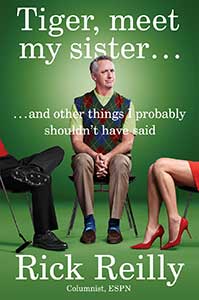 good. I am just going to write books. So I thought hell why not eliminate the middle man and write your own obituary. It was really fun. It was really fun to look back on your life and say it wasn’t that bad.
good. I am just going to write books. So I thought hell why not eliminate the middle man and write your own obituary. It was really fun. It was really fun to look back on your life and say it wasn’t that bad.
AE: The section where you talk about fortitude when small people act big was very inspiring. From all that you have seen which story will always stay with you?
RR: Over my career I have found that those are the stories that I like doing the best. When you write about small people doing big things and overcoming things. There was this kid I wrote about who refused to give up running for the cross country team. He was a high school kid. It took him 35 more minutes than his teammates because he had cerebral palsy. The right side of his body didn’t work. He kept falling. In cross country you are going over fields and streams.
His face was all scarred up from these falls. His parents begged him to quit. So did his coaches. He wouldn’t quit. Pretty soon his teammates would go out there and finish the race. Then they would go back a mile and a half and finish with him. Pretty soon the girl’s team started doing. Then the cheerleaders started doing it.
Then at the last meet that he ran the opposing teams did it. At the finish line it was a bunch of crying parents. That kind of column sticks with me. I would say that there are five of those in this book.
AE: You have a section in your book about how some of your articles got you into hot water. For those articles how do you make up your mind whether to publish a story or not?
RR: Truth. You try to tell the truth. Sometimes you fail and get it wrong. I think I have published over two million words in my 37 year writing career. So you are going to screw up. Especially if you are an idiot like me you are going to screw up a lot. So the times you regret the most is when you accidentally misquote someone. Or when you realize later when meet someone you didn’t paint the right picture of them.
Sometimes you get into hot water, but you would still do it again. I think of Sammy Sosa, who at the time around 1998, was saying that he couldn’t wait for drug testing. He couldn’t wait for steroid testing. He said, ‘I am going to show all you people 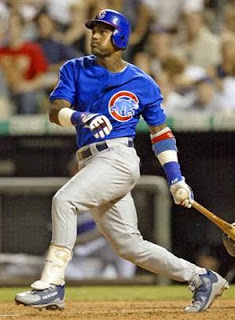 that my numbers are real.’
that my numbers are real.’
I said to him, ‘I found a drug testing lab ten minutes from Wrigley Field. You don’t have to wait for drug testing. Let’s do it now.’
He flipped out. He started screaming at me in Spanish. He started grabbing this baseball bat and threatening me. I was like hmm, someone doesn’t want to be tested. His point was about the (baseball players) union. It was sort of a mild post in a steroid story. He freaked out at the idea of being tested. As we know he did show up on a steroid failed test list. He shrunk by about 40 pounds as soon as he got out of baseball. His best friend was busted with 20 thousand dollars’ worth of steroids in the Dominican. I was in hot water for months over that, but I thought I was right.
AE: I have been a big fan of your work since I found your column in “Sports Illustrated.” Love the way you tell a story. How did you hone your craft as a storyteller?
RR: Thanks for saying that because I am 56 years old, but people come up to me like I invented the printing press. They will say, ‘I was 13 years old and that was the first reading I ever did. You taught me how to read.’
I am like come on. I am not “Dick meets Jane.” I was like you. The first really good reading I ever did was sports. It was a guy named Jim Murray. He was this great columnist for the “L.A. Times.” He wrote sentences that I have never seen before. They just jumped off the page and punched you in the nose. There were sentences and you would be like how did he do that?
I would read it over, over, and over again to see how he did it. It would be things like, ‘John Wooden is as square as a pan of fudge.’ Or things like, ‘Gentleman start your coffins.’ That is what he said once at the start of the Indy 500. This was a whole new way to write. That guy became my friend, my mentor, and my hero when I went to the “L.A. Times.” He said, ‘Make the writing 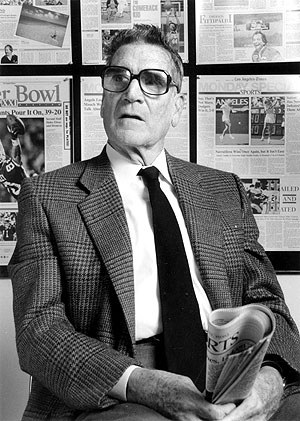 fun. There is no city ordinance. No one has to read you. They have got to want to read you.’
fun. There is no city ordinance. No one has to read you. They have got to want to read you.’
That was what stuck with me more than anything else. Make them want to read you. Make it fun. Don’t make it a job. That is how I tried to write from then on.
AE: Who has been the best person that you have interviewed and who has been the worst?
RR: Charles Barkley would be one through four. Then playing golf with Bill Clinton when he was the standing President was fascinating. I have never been around someone with that much charm, knowledge, and wit all wrapped in one. I know people think he is some kind of redneck hick, but this guy knew more about the world which I learned in four hours of golf. I thought he was really fascinating.
Another fascinating interview was with Mike Tyson. You didn’t know if you were going to get out of there with a punched eye or you were going to be his best friend or you were going to do crystal meth. You didn’t know if he was going to threaten you. You think anything could happen.
I always found him so fascinating because he was always so self-loathing. Yet in so many ways he was sort of an idiot savant. He knew more about Mao Tse-Tung and rebels in China and boxing, but he could hardly make his car payment.
So if you talk about most interesting interviews like Mohammad Ali when you would get him in the morning and he could still talk to you. He played tricks on you. One time he pretended to fall asleep during an interview with me. It was just me and him in this room. At that point I was like okay I guess I will just read this magazine. Two minutes later he dove across the couch and choked me. It was all a fake. So guys like that are things that I will never forget.
The worst. There have been so many bad interviews. Some people just start with a chip on their shoulder. Reggie Jackson started off that way. Sam Snead was terrible. What is funny is that some of these people who have never been interviewed are the worst. They say no comment. Dude you are really never going to be interviewed again so you better make a comment.
AE: Is there a person that you have tried to interview and to this day you are still trying to get?
RR: To this day and I can’t get him anymore was Johnny Unitas. The great quarterback would charge money for an interview. We weren’t ready to do it. Well I was ready to do it because I thought that alone was worth a column. That was a guy that I was never able to get. The companies that I worked for refused to do it. I can see why, but still. Wouldn’t it have been fascinating to interview Johnny Unitas and pay for the privilege?
AE: Recently you tweeted out that you are giving up your column at ESPN. How tough of a decision was that? 
RR: Not tough. Not tough. I have been doing this for a living since I was 19 years old. It has always been sports. It has never been anything else. It is kind of like when a dog as an electric fence and finally the owner dies. The dog is like can I really leave this yard?
I could have left the yard about five years ago. I said okay I will go five more years and that is when I did this ESPN thing. I have been dying to try and write music, movies, politics, travel, and I want to do books. I have written 11 books. Three of them have been novels. I love the novels because the characters say stuff that you are laughing at the things that they are saying. And it is coming out of your fingers. So that is a really fun experience. We are going to live in Italy for six months. There is just a whole new life waiting out there for me. I am not dying. I am still going to write. I am certainly not going to write that much sports.
AE: Well maybe writing your obituary in this book might not have been the best thing since people might think you are dying.
RR: Yeah, they might really think that I am dead. A lot of them wish I were.
Apr 28th







